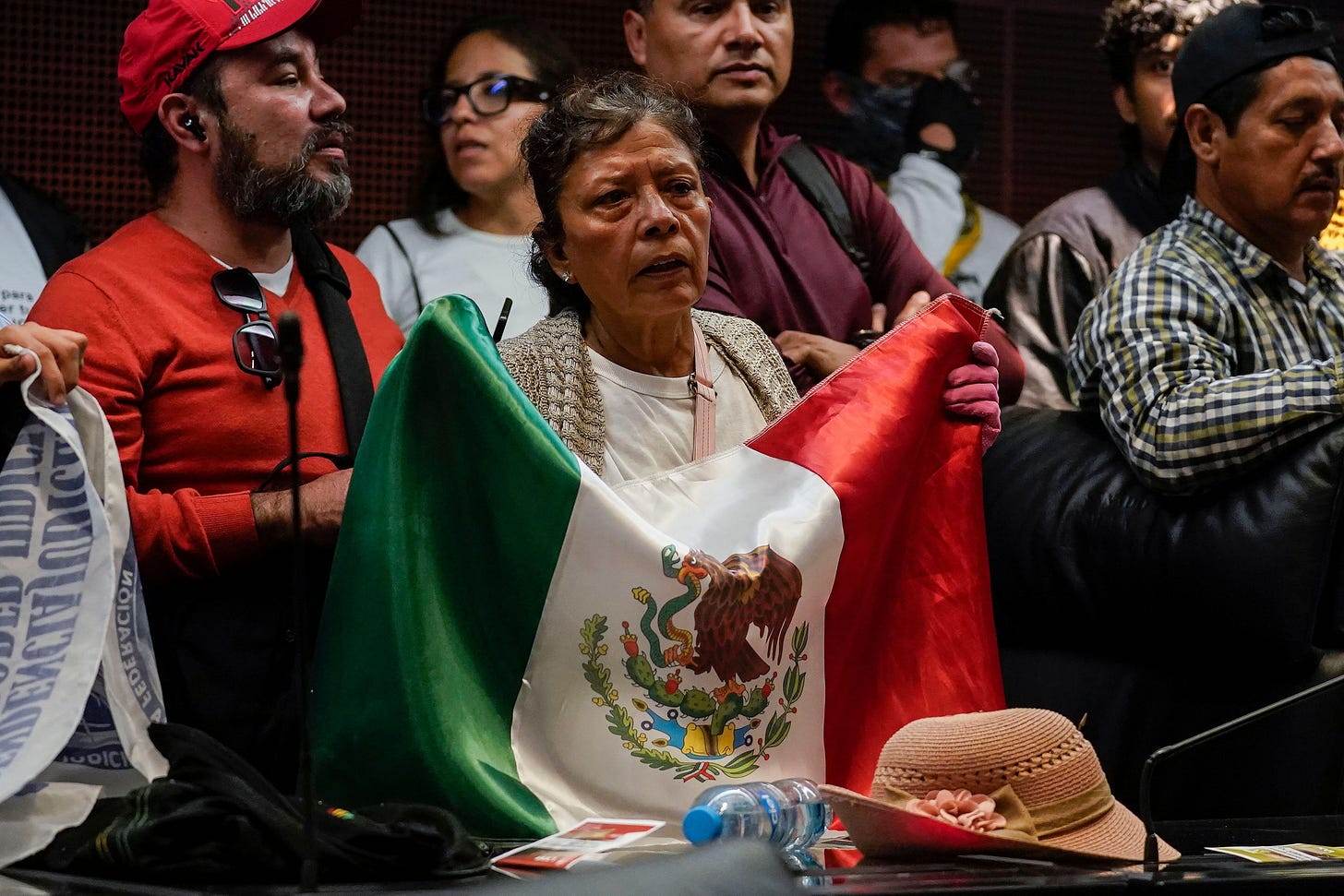Mexico in Turmoil: 'The End of the Republic as We Know It'
Controversial judicial reform passes through Mexico's Congress amid huge protests as President-Elect Claudia Sheinbaum prepares to take the reins from her predecessor.

The Mexican Congress has approved a highly controversial judicial reform this week that would see judges elected by popular vote, despite weeks of protests and strikes from thousands of civilians, opposition politicians, and members of the existing judiciary. The judicial reform is part of a broader constitutional overhaul aimed at dismantling independent institutions pushed through by President Andrés Manuel López Obrador and firmly defended by his successor, President-Elect Claudia Sheinbaum. Both politicians from the ruling Morena party have forcefully defended these changes, sparking fears of consolidation of power as the new administration prepares to take office.
Elected on 2 June, Claudia Sheinbaum is set to take office on 1 October, vowing a continuation of the current President’s ‘Fourth Transformation’ of Mexico. With criticism after an already contentious election season, where candidate assassinations and alleged voting irregularities overshadowed the election result, concerns have grown over an ‘unconstitutional’ supermajority in both houses of the Mexican Congress. Mexico’s newly elected Congress, comprised of the Chamber of Deputies and the Senate, came formally into session on 1 September. This allows outgoing President López Obrador to push through his final legislative agenda before the new administration takes over in October.



